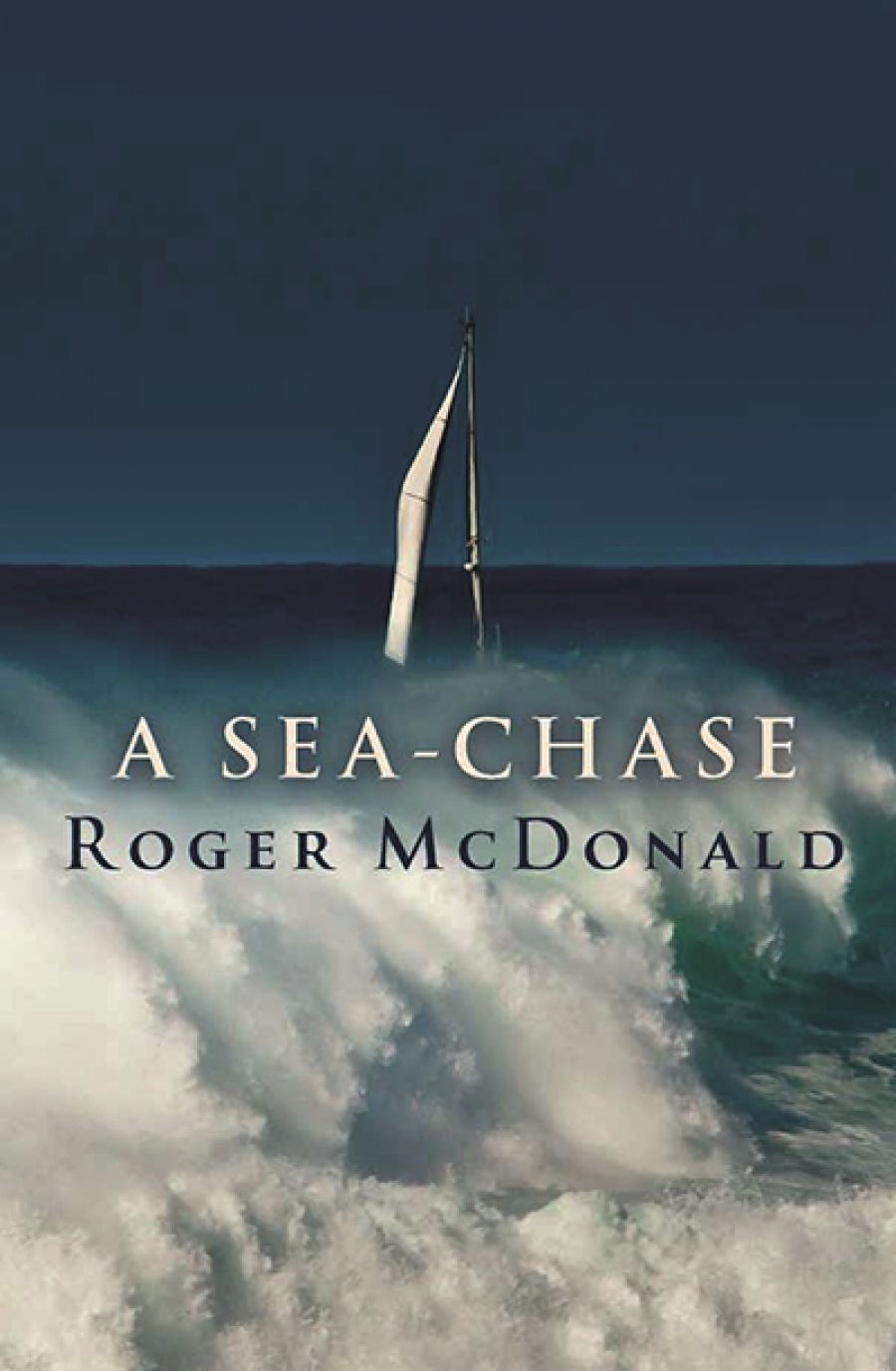
- Free Article: No
- Contents Category: Fiction
- Custom Article Title: Brian Matthews reviews 'A Sea-Chase' by Roger McDonald
- Review Article: Yes
- Online Only: No
- Book 1 Title: A Sea-Chase
- Book 1 Biblio: Vintage, $32.99 pb, 288 pp, 9780143786986
Reading this rush of stuff, especially the details of the Mark II – which we soon discover runs into trouble because of some recalcitrant ‘butterfly nuts’ (butterfly nuts!! surely among the easiest of tighteners/retainers to deal with) – and learning that Judy goes bush on a mission to sell the Mark II to schools, make one wonder, made me wonder anyway, if McDonald was having us on and if I had missed some cues. Why is a writer of McDonald’s demonstrated power, imagination, and narrative command (1915, Mr Darwin’s Shooter, The Ballad of Desmond Kale) concerned to array such marginally credible characters – Redlynch, Dijana, Tony Watson – or even Wes, lumpish and dogged for much of the time but transformed at the end? Only Judy, who first appears as that standard education department cliché, the disgruntled neophyte trapped by the bond, grows beyond her own petulance, family complexities, and the machinations of the Redlynch circle among others, to appear, for the last time, transcendent and assured on her boat, the Raymond Compton, which, from a final distance, ‘coalesced into the apparition of a lovely grey swan bobbing on the water’.
The assurance and luminescence of that last image provides an answer to questions about what precisely is this novel’s abiding interest and concern. When McDonald puts out to sea, so to speak, he is in splendid form, at his most engaged and brilliant.
No other boats were out. It was a mad day. They drove broadside, leeward, with as much canvas raised as could be dared, which was little, the engine screaming and the feeble prop thrown up into the air and thrashing down again. They could see a line of surf paralleling them. A mist hung over it like a veil. Rattler was caught within two enclosing headlands of Great Exhibition Bay and would need to sail out of the bay to survive but would only be able to do so if the wind changed ... They crouched, waiting, holding on, dashing bullets of sting from their eyes, wearing their bulky red life jackets lashed tight. The wind did not change ...
Through Wes, McDonald savours the sea world: ‘Boats were a universe implicated in the sea around him. If the world had a consciousness, boats were its dreams, called into action by the elements, made real in the world on waking. Boats had taken Wes over and spat him out ... after a time when he’d chewed dirt as a penance [for narcissistically wrecking Rattler].’ The image irresistibly echoes Father Mapple’s sermon in Moby-Dick where he describes the end of Jonah’s tumultuous, spiritually regenerating voyage in the whale’s belly: ‘... from the shuddering cold and blackness of the deep the whale came breeching up towards the warm and pleasant sun ... and vomited out Jonah upon the dry land and Jonah [was] bruised and beaten, his ears like two seashells still multitudinously murmuring of the ocean ...’ Like Jonah, with the sea surge once again in his ears after an outback exile, Wes begins to see the truth of things.
 Roger McDonald
Roger McDonald
A Sea-Chase is a flawed story, driven by, yet too fully at the mercy of, an urgency of passions of which a yearning for the ‘vast and endless sea’ is the most powerful, and the most imaginatively successful. Narrative strands enough for several novels are tentatively advanced and put on hold, but there is something endearing and gripping about the somewhat chaotic unfolding of this story and its refusal to be resolved. Wes and Judy don’t sail off into the sunset. Ishmael-like, they simply determine, independently yet forever in tune with each other, to ‘sail about a little and see the watery part of the world’.


Comments powered by CComment